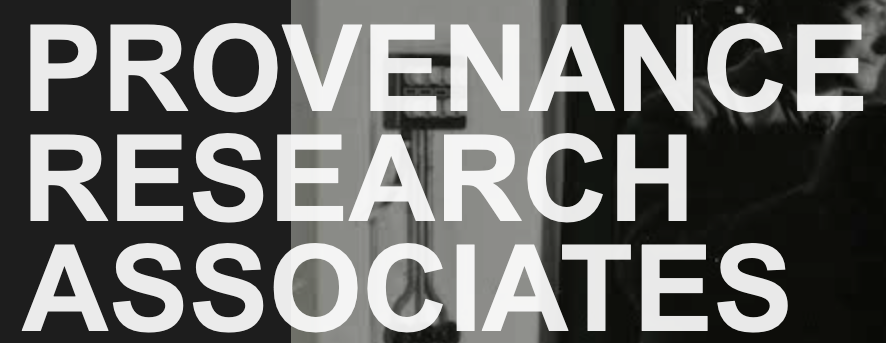All the Beauty of the World. The Western Market for non-European. Artefacts (18th-20th century)
13-15 October 2016
Bauakademie am Schinkelplatz, Berlin, GERMANY
In the wake of the Western expansion, a fast growing number of non-European artefacts entered the European market. They initially made their way into princely cabinets of curiosities. Made possible by the forced opening and exploitation of more and more parts of the world and pushed by social and technological changes of the time, the 18th century brought a boom of the market of non-European artefacts in Europe. This came along with the emergence of a broader collecting culture and the development of a rich museumscape.
This market and its development between 18th and 20th century in terms of actors and networks involved, methods and places of exchange and monetary and ideological value of the objects are in the focus of an international symposium organized by the Institute for Art History in cooperation with the Center for Art Market Studies at Technical University Berlin, the Institut d’histoire moderne et contemporaine (CNRS) and the Labex TransferS (PSL) in Paris.
Convenors: Prof. Dr. Bénédicte Savoy, Dr. Christine Howald (Technische Universität Berlin), Dr. Charlotte Guichard (Institut d’histoire moderne et contemporaine/CNRS, Paris)
Keynote Lecture by Timothy BROOK (University of British Columbia, Vancouver): The Economy of Taste in Ming China. Buyer and Dealer in the Art and Artefact Trade (1609-1616)
Introduction by Bénédicte SAVOY and Charlotte GUICHARD: To Trade is to Transform. Shaping Value in a Global World
Section 1: EMBEDDED MARKETS | Chair: Johannes NATHAN (Forum Kunst und Markt, Berlin/ Nathan Fine Art, Potsdam und Zürich)
Noémie ETIENNE (University of Bern): Informal Market: Transactions and Translations in Versailles (1750-1800)
Natasha EATON (University College London): Creating Competing Spaces for Indian Art: Mimetic Rivalry and Collecting Networks in Britain and India
Talip TÖRÜN (Deutsches Schiffahrtsmuseum, Bremerhaven): Delivered Ex Ship – The German Maritime Markets for non-European Artefacts (19th century)
Section 2: MARKETING OBJECTS | Chair: Esther TISA FRANCINI (Museum Rietberg, Zürich)
Manuel CHARPY (CNRS/IRHIS Université Lille 3, Lille): Trading Places. The Exoticization of Goods in 19th century Paris, London and New York
Yaëlle BIRO (The Metropolitan Museum of Art, New York): Avant-Garde, Ethnography, and the 1920s Sale of John Quinn’s African Art Collection
Elodie VAUDRY & Léa SAINT-RAYMOND (Université Paris Ouest Nanterre La Défense, Paris): A new Eldorado: The French Market for pre-Columbian Artefacts in the Interwar Period
Section 3: SELLING AUTHENTICITY | Chair: Dorothee WIMMER (Technische Universität Berlin)
Philip JONES (South Australian Museum, Adelaide/Australia): Australian Aboriginal Artefacts in the International Market (1880s – 1930s)
Jonathan FINE (Ethnologisches Museum, Berlin): Obscured Objects of Desire: Negotiating the Paradoxes of the Art Market in Bamum (1924-1930)
John MONROE (Iowa State University, Ames/USA): Presumed Antique: Paul Guillaume and the Connoisseurship of African Sculpture
Section 4: GLOBAL PLAYERS | Chair: Alexander HOFMANN (Museum für Asiatische Kunst, Berlin)
Nélia DIAS (IUL – University of Lisbon/ CRIA): Christophe-Augustin Lamare-Picquot and the Fate of his Collection: Networks, Commercial Transactions and Museums
Ting CHANG (University of Nottingham): Emile Guimet’s Network for Research and Collecting Asian Objects (ca. 1876-1918)
Masako YAMAMOTO (Ritsumeikan University, Kyoto/Japan): Innovative Strategies in Dealing Japanese Art: Ikeda Seisuke, Yamanaka &Co. and their Overseas Branches (1870?- 1930s)
Section 5: DEALING WITH WAR | Chair: Anne-Solène ROLLAND (Musée du Louvre, Paris)
Christine HOWALD (Technische Universität Berlin): The Power of Pricing. The Legitimization of Chinese Looted Art on the European Market (1860-1862)
Felicity BODENSTEIN (Musée du quai Branly, Paris): Comparing the English, German and French Art Market for Objects from the Edo Kingdom’s Treasure (1897-1932)
Ana MANTUA (Dr. Anastácio Gonçalves House Museum, Lisbon): Diasporic Objects. The Portuguese Chinese Ceramics Market between 1942 and 1965
